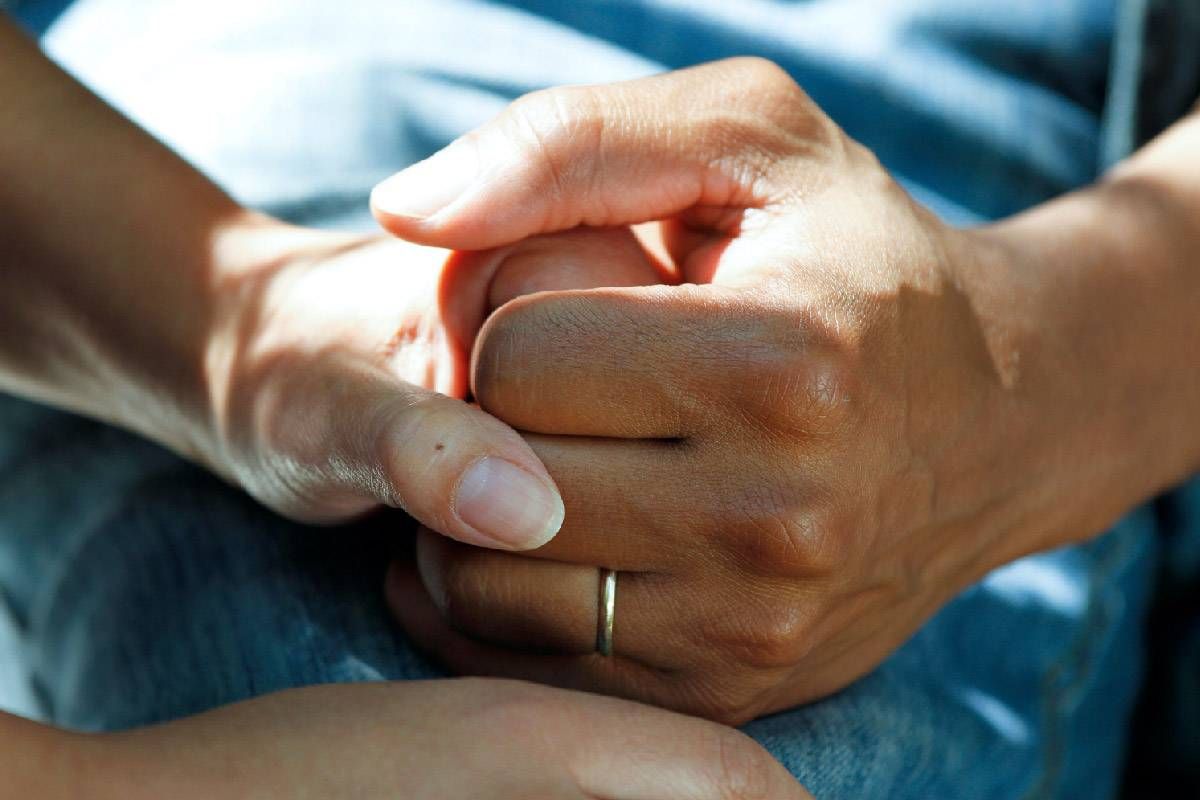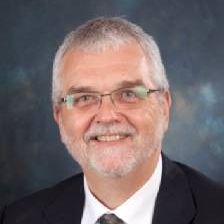Surviving a Spouse's Suicide
A 75-year-old widower talks about the ways he is coping with the unexpected and shattering loss of his wife of 33 years
75-year-old Daniel is retired from work as a financial advisor and was married to Eleanor for 33 years. Late last July, she died by suicide. (Names of the couple have been changed to assure the integrity of their privacy.)

Daniel gently talks about Eleanor. "She had myalgic encephalomyelitis/chronic fatigue syndrome (ME/CFS) a serious illness that affects many body systems. She was diagnosed with the condition in 1991, before much was known about the disease. People with ME/CFS are not able to do their usual activities because of severe fatigue, generalized pain and sleep problems. Even with excellent treatment throughout the years, she got worse with age and had increased problems with thinking, concentrating and dizziness," Daniel explained.
"By the time she was fully disabled, she not only lost her health, but her work identity, many of her friends and self-esteem."
"The chronic illness put the brakes on her vibrant life that was marked by two careers, the first as a labor and delivery Registered Nurse and later as a flight attendant when she traveled the world. By the time she was fully disabled, in the early nineties, she not only lost her health, but her work identity, many of her friends and self-esteem."
According to her husband, depression was a constant companion for Eleanor. "She began psychotherapy in 2015 when she was no longer able to repress a history of childhood sexual abuse," Daniel said.
Eleanor's physical health declined for two years before her death and included an in-patient hospital stay at the Mayo Clinic for pain management.
Then, as Daniel said, "The COVID shutdown just made things worse. We were housebound and, if there was such a thing, she was more isolated."
Life Changes in Unexpected Ways After a Loved One's Suicide
One afternoon, after waking from a restless nap, Daniel remembers Eleanor saying, "I can't stand this." She went upstairs in their home and killed herself. "No one saw it coming," he said.
In a conversation with Eleanor's psychiatrist shortly following her death, Daniel was cautioned about his vulnerability as a widower.
"I'm now really alone, which wasn't so foreign to me," he said. "We had no children. As the disease progressed, Eleanor had significant social limits and our world got smaller, even though we always knew where each other was. Several months after she died, I remember an accident where I stepped through the attic sheetrock as I was cleaning; it took thirty minutes to free myself. I knew then and there that I was on my own in a new way. I thought, 'uh, oh! I have no help' and I was frightened."
"I am heartbroken and dizzy with the questions and confusion about what happened."
Social science research underlines portions of Daniel's narrative. Significantly, older adults who have lost a spouse to suicide face an increased health risk, greater than those whose spouses have died of other causes. The research on the "why" of the health risk is inconclusive but points toward a truth in Daniel's story.
"Less than three months after Eleanor died, I had a 'health whack.' I had intense vertigo and zoned out for several days. It went away as mysteriously as it appeared, and I didn't do much about it until the first of the year when it came back. I went through a full battery of diagnostic tests. Not much was found. There was mild evidence of cardiomyopathy, but without any significance. I had idiopathic vertigo, which is the medical way to say, 'I don't know,'" he explained. "I was medicated and my visits with my PCP (primary care provider) are now every six months. Bottom line? I am heartbroken and dizzy with the questions and confusion about what happened."
Daniel sees a psychologist to help navigate his grief. While the research has some controversy, there is prevailing evidence that widowhood is more difficult for men than women.
"I'm struggling to adjust. The house is the same, she's just not here. I can make decisions based entirely on what I want and need, but that doesn't feel right," Daniel said. "I don't feel depressed, even though my doctor wants me to take an anti-depressant. I do find that I get bored easily, and that's when the loneliness rears its ugly head. I replay the last few days of her life and the tragic details of her death. I don't guess I'll ever understand how she got to the point that she took her own life."
Daniel relies on "very good friends who provide support," and acknowledges that he's learning to take better care of himself.
Daniel also talks about surprising changes in social support. "Most people mean well, but just don't know what to say. Advice has not been helpful, and so many of my friends think that I should be 'over it' by now, or at least better, which means nothing to me," he said. "It doesn't make sense: To think that Eleanor and I were married for as many years, that she died tragically, and now I should get on with my life? My whole life is disrupted. I'm an older guy and I don't have the bounce that I had when I was younger."
There is no doubt that the loss of a spouse from suicide is heart-wrenching. While the trajectories of grief vary, there are reliable steps that may be taken to assist in the determination of a new lay of the psychological landscape.
Surviving the Loss of a Loved One
Talk to a qualified counselor or therapist. By meeting with a therapist, an individual can have the opportunity to sort out the complex emotions associated with such a tragic loss of a loved one which can be overwhelming and difficult to personally navigate. Finding words to describe the experience helps one to feel more "in charge" amid feelings of being out of control.
Be attentive to personal health. To the degree possible, eat well. Find a new sleep routine. Exercise. Keep doctor's appointments. Tend to personal hygiene, such as haircuts and wearing clean clothes. Use alcohol sparingly. If you rely on alcohol as a sleep aid or an anti-anxiety medicine, talk to your physician. There are better alternatives.
Focus on self-care changes. Following the death of a spouse, find ways to acknowledge the significant changes in managing and coping with the shift in rhythms of daily living. There is a caution noted though, for according to Daniel, "Don't tell me to 'take care of yourself.' That is just the dumbest thing to say. Of course, I'm taking care of myself – not very well, but doing the best I can. Ask me how you can help and offer to be a resource."
Stay busy. Normal routines are upended, and as Daniel said, "I am loneliest when I'm bored." Distractions help, even if just for a few minutes. Finding ways to be involved with a task or project lends itself to a sense of purpose and helps the movement of time. Grief has a motion of its own and does not respond to clock hours. There are times that a moment can feel like a month. Time will pass.
Turn to others. Seek out friends and family. Do not wait for them to reach out or you will find yourself disappointed. Make it a point to be in touch with others who have the potential and possibility of being a building block in a new safety net of social support; consider connecting with other suicide loss survivors or join a bereavement group. If you find that a year after the death you have difficulty engaging in life, you may be experiencing Prolonged Grief Disorder and there are helpful treatments for that.
For Daniel, while he admits to being sad much of the time, he says, "I am hopeful that I am changing and learning to roll with life's punches."
Daniel relies on "very good friends who provide support," and acknowledges that he's learning to take better care of himself. "It is a process," he says.
Where to Seek Help
The American Foundation for Suicide Prevention provides links to support groups, therapists and programs. Some of the programs are offered virtually.
If you know an older adult is in immediate danger of taking their life, take them to an emergency room, or call the National Suicide Prevention Lifeline at 800-273-8255. 988 is a new universal dialing code to broaden access to suicide prevention and crisis services. Dialing 988 connects people in crisis directly to the Suicide Prevention Lifeline, where counselors provide free, unbiased, and confidential support 24 hours a day, seven days a week. Dialing 988 is the same as dialing 911 for emergency response. There is no reason to dial any other digits besides those three.
Editor’s note: "Facing Suicide" is a new PBS documentary exploring the personal stories of Americans impacted by suicide, and journeys to the frontlines of medical and scientific research to meet those working to help people at risk. "Facing Suicide," narrated by Josh Charles ("The Good Wife") is streaming on PBS.


